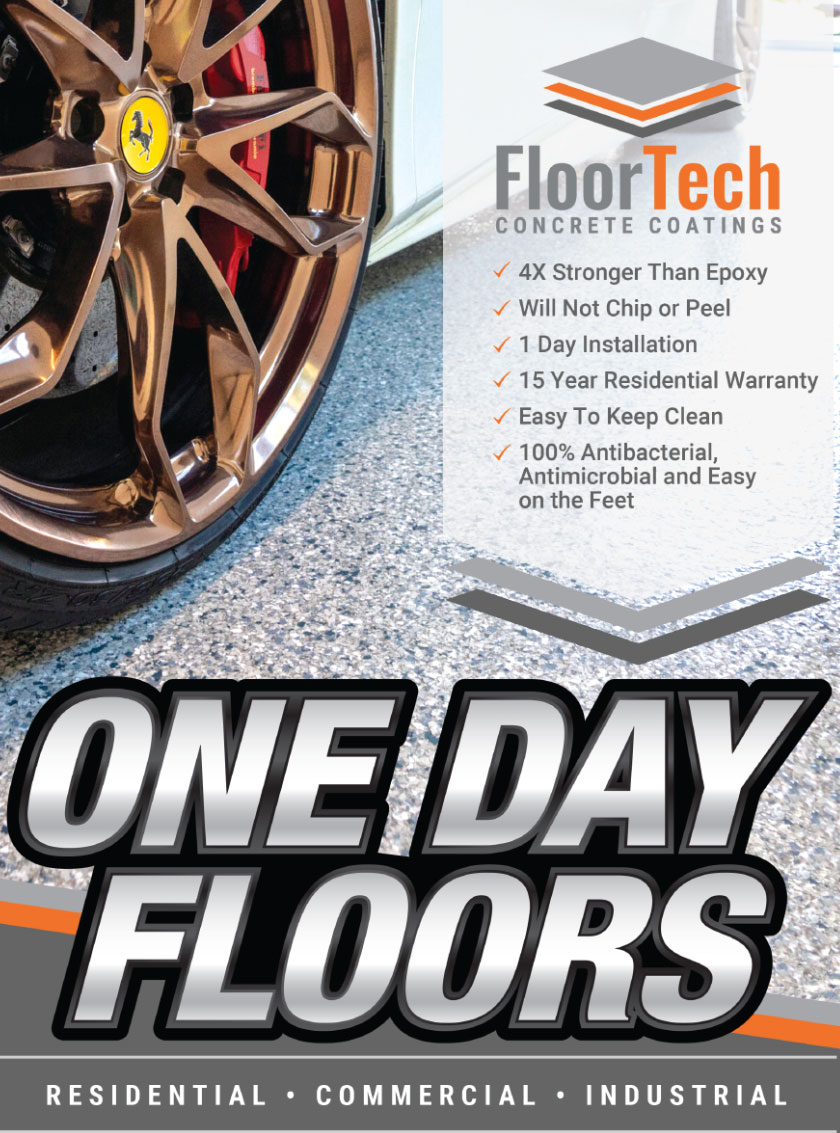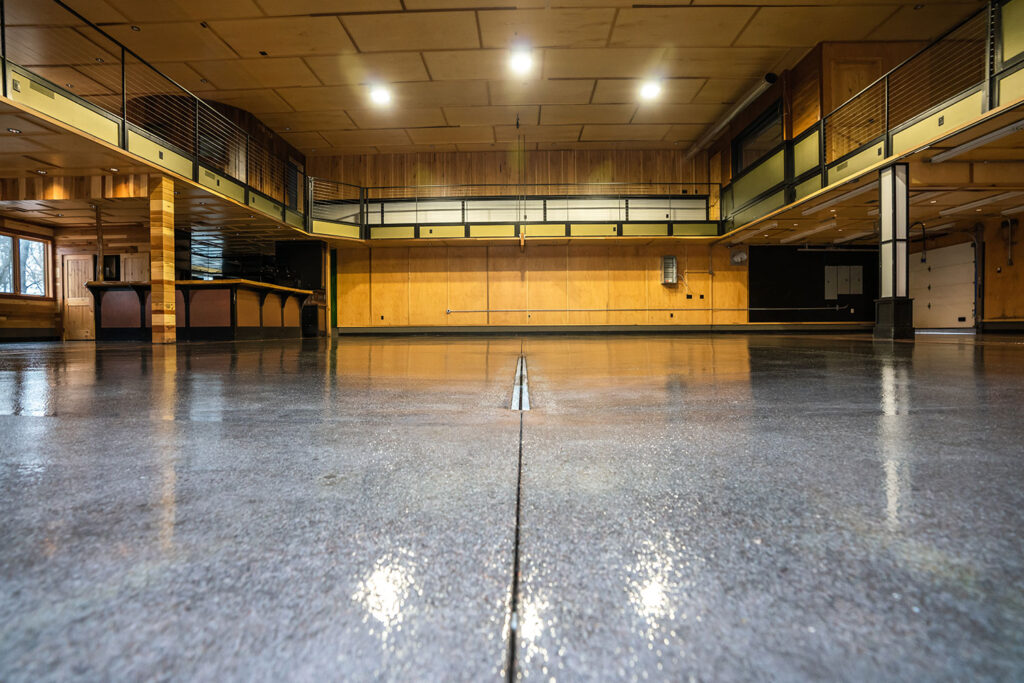The popularity of epoxy flooring often used in home garages is facing tough competition from polyurea floor coating. Both these coatings differ visually, their UV stability varies, durability factor differs, their moisture barriers are different, and so is the slip resistance and lifespan.
Visual Difference
Be it a garage, basement, or patio, both epoxy and polyurea applications enhance the appearance of these spaces. Epoxy is not meant to even out crack, chipped or dangerously uneven surfaces, however, it does help in covering some apparent flaws. With polyurea floor coating, the homeowners get a variety of color options to choose from in order to match it with their interior or exterior décor.
Difference In Uv Stability
Epoxy floorings are bad at withstanding UV damage and they are known to become discolored over time. Polyurea concrete floor coatings, however, do not fade or yellow with exposure to the sun since they have UV-stable elements that help prevent it.
The Durability Factor
Polyurea can withstand heavy traffic, skids, abrasions, and impacts since it is considered nearly five times stronger than epoxy. This is one of the reasons why polyurea concrete floor coatings are among the most durable flooring choices. While epoxy struggles to deal with moisture and unwanted pests, polyurea concrete floor coatings work as an impenetrable barrier against these elements. Epoxy only protects the flooring from salts and chemicals for a short time, however, polyurea remains extremely resistant to damage, accidents, and mishaps for over a decade.
Epoxy is not ideal for temperature change protection since it doesn’t move with your home’s foundation when it expands and contracts because of its lack of elasticity. It cracks over time in response to temperature changes, whereas, polyurea has proven to be 98% more flexible than epoxy.
The Moisture Barrier
Moisture vapor transmission from underneath the slab can delaminate the coating if your garage floor has a high moisture content. And if your property does have a moisture issue, then polyurea floor coating can help way better than epoxy.
Slip Resistance & Lifespan
Polyurea’s chip system makes the floor slip-resistant, and while epoxy’s non-porous nature creates a smooth surface, this can pose a threat when epoxy floors get wet and become slippery, especially with oil spills.
In areas where harsh winters are experienced, epoxy floors experience pitting, chipping, and splitting, while polyurea coatings are known to withstand this extreme test. Since polyurea is highly elastic, it accommodates expansion, contraction, and relative movement within concrete without cracking. Epoxy, on the other hand, is a thermosetting resin that coats the floor, but doesn’t withstand the elasticity you need as your foundation settles.
Contact FloorTech Concrete Coatings for Polyurea Flooring
Give us just 24 hours, and you can begin to enjoy your new flooring much sooner than if you had epoxy installed. You can always contact FloorTech Concrete Coatings to find out more about polyurea floor coatings.







